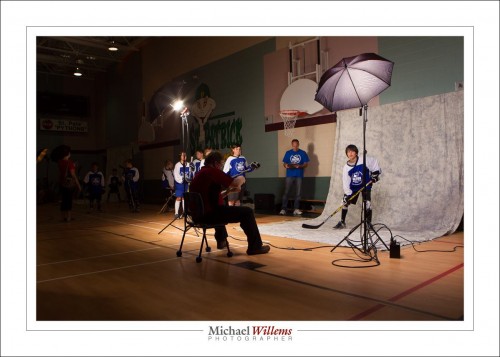The Easy Way Out Is Not The Right Way.
I just read a post on a Facebook group from a photographer who is about to shoot portraits at a wedding, in a photo booth. She has two softboxes, two flashes, and a camera and a few triggers, and her question was basically “I have no idea what to set the camera and all these other things to, and it is so confusing”.
This is a good example of trying to take the easy way out, and it is seldom a good way. Things do not come that easy. Her question sounds to me like “I bought an airplane and I need to fly it to Sydney but I have no idea what all these meters and levers and dials do, but I don’t want to read a book”. This sounds almost insulting to those of us who did take the trouble to actually learn stuff.
Guess what: you will have to read a book, and take some lessons. Trying to shoot professionally while not knowing even the basic facts gives photographers a bad name.
I see this in students sometimes: the “but but but syndrome”, I like to call it. “I can’t learn this”. “Yes you can”. “But but but…”, and every further argument or fact or attempt to help is answered by a “but but but”. This is someone who “just wants it to be easy”.
Well, guess what. Yes, you can learn this. Everyone can. But yes, you will need to learn things, like the workings of aperture, shutter, and ISO; the inverse square law; flash power settings; shutter limitations when using flash; balancing ambient and flash; how modifiers work; and a whole lot more. Just like to fly an airplane, you do need to know how all the levers and handles and switches work.

- B737 flight deck
The good news: flash is simpler than a B737 flight deck.
The bad news: you do have to learn it, and some of the theory behind it. Here are the easy ways:
- Go to http://learning.photography/collections/books and buy the Pro Flash Manual, and if necessary, the “Mastering Your Camera” manual. These are non-DRM PDF files, i.e. you can read them on any computer, pad, phone or similar, and you can carry them with you for convenience. They will teach you everything, There is no excuse for “not knowing things”.
- Then take a course (email me on michael@mvwphoto.com to arrange a date/subject).
- Read this daily blog, here on www.speedlighter.ca
- Then do all the exercises mentioned in the above resources.
“But I don’t learn that way; I don’t learn from reading. I need to be hands on.”
Yeah, sure, and the books are full of practice. But just like Pythagoras’s Theorem, Shakespeare, Brain Surgery, or Quantum Electrodynamics, it does start with reading. Sorry. The cold, hard, realities of life. trust me on this: I know how people learn. You will learn this.
“But I don’t do math.”
Some minimal math is needed, just like when you go to your local supermarket. When you hand the cashier a $100 note for a quart of milk and she hands you back 23 cents, you do not say “that’s OK, because I don’t do math”, do you? No—you smile at her, hold out your hand insistently, and say “and the rest?”
“But my friend just presses buttons.”
Sure, I can come set up your camera and flashes and you can just press buttons, Sears “minimum wage” style. But what will you do when something goes wrong? Or the batteries run out? Or you need to change cameras? Or you need to shoot in a different room? You need to know what you are doing.
And by the way, it is not confusing. Here, then, since you asked:
- Camera on manual exposure mode (“M”).
- Set it to 200 ISO, 1/125 sec, f/8. (no auto ISO!)
- Flashes on manual mode, 1/4 power.
- Picture too dark? increase flash power or bring flashes closer to subject. Picture too bright? decrease flash power or move flashes away from subject.
- If you have these settings, then trigger on camera is on TRANSMIT/REMOTE; triggers on flashes are on RECEIVE/LOCAL.
That’s all. Not complicated at all. But to see that it is not complicated, and to see why I recommend those particular settings, you do need to know the background. Otherwise flashes will always seem like that B737 flight deck.
PS: the photographer who asked the question did, I am sure, do lots of re4search. I am arguing not against her, but against other who do not do the research. All too common.

